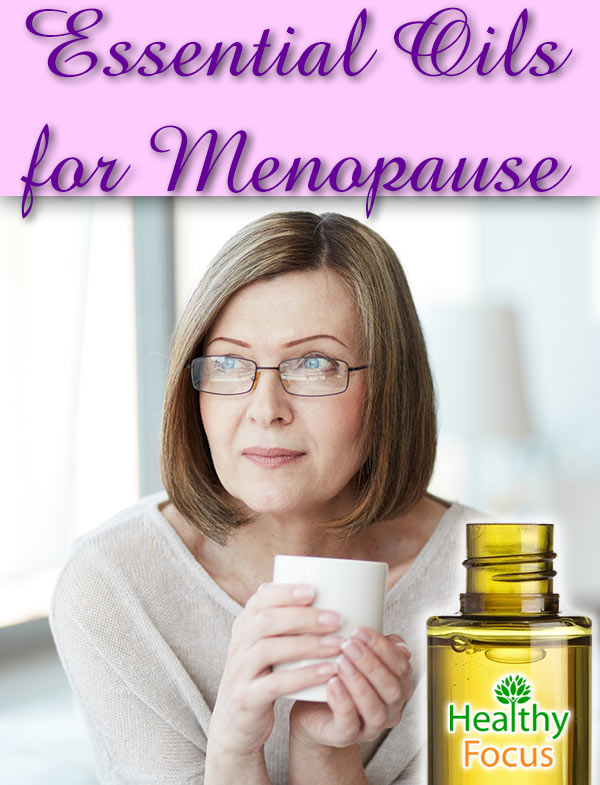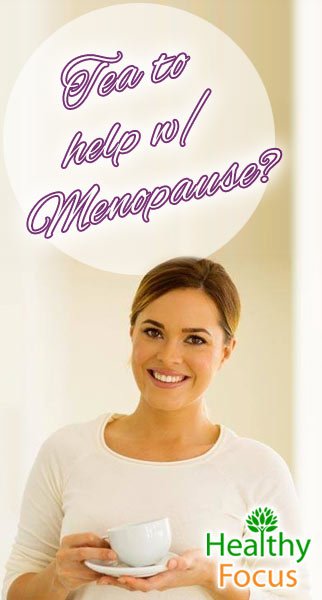Last Updated on December 2, 2019 by Marc Seward
If you’re a woman, there’s no denying the fact that you’re eventually going to go through menopause. Menopause is a condition when a woman misses 12 consecutive periods. This biological shift marks the end of a woman’s fertility.
During this time, a woman’s ovaries cease functioning. This is not an abrupt change, as women typically go through a premenopausal transition period. On average, women start to transition into menopause around 51 years of age.
However some documented cases have shown that women as young as 30 have started menopause. Unfortunately, there is no certain predictor to determine when a woman will start to go through menopause in her life.
Menopause Symptoms
Its no secret that menopause is an uncomfortable condition. Women experience such symptoms as hot flashes, abnormal vaginal bleeding, vaginal and urinary problems, and mood swings. Hot flashes are the most common complaint of menopause.
Women experience episodes of hot flashes when estrogen levels are low in her body. Some characteristics of hot flashes are when a feeling of warmth spreads throughout the body, sometimes accompanied with redness and perspiration. These hot flashes can endure for as long a half hour and as short as a couple seconds.
These hot flashes are the result of blood vessels constantly opening and constricting; a common side effect of menopause. Menopause symptoms can range from moderate to severe, lasting from a couple months to several years.
Other symptoms of menopause are anxiety, irritability, emotional detachment, irritability, memory lapses, and fatigue. Sometimes menopause can lead to further complications such as osteoporosis and heart disease.
Essential Oils
Unfortunately, there is no escaping the effects of menopause, however, there are steps you can take to make the uncomfortable symptoms of menopause more bearable. Below is a list of common menopause symptoms and the essential oils you can use to soothe them.
Low Estrogen Levels
Low estrogen levels is a significant side effect of menopause, causing such uncomfortable symptoms as hot flashes, sleep disturbances, fatigue, night sweats, headaches, decreased sex drive, dry skin (including eyes and vagina), joint pain, and depression. Essential oils such as sage, basil, coriander, fennel, anise, and clary sage contain a property that mimics estrogen.
If you pair these essential oils with peppermint or lemon, they can also help alleviate hot flashes. To get immediate relief, mix a couple drops of essential oil with a carrier oil and massage onto a fatty part of your body for maximum absorption where the hormones are stored.
Hot Flashes
Hot flashes, a common and uncomfortable symptom of menopause is the result of low estrogen in the body. Hot flashes can feel like suddenly having a fever, redness and extreme heat spreading throughout your body, often leading to perspiration.
Along with hot flashes, a woman may experience chills or rapid heart rate. Sometimes these hot flashes may occur at night, making it difficult to sleep and leading to fatigue during the day. One essential oil that has shown to be exceptionally effective in treating hot flashes is clary sage.
Other essential oils effective in minimizing hot flashes are roman chamomile, thyme, and peppermint. If you want to nip hot flashes in the bud or start to feel a hot flash creeping up, inhale peppermint essential oil. Simply place a few drops of essential oil in a tissue and breathe in.
This also works for the other essential oils listed above. Another way to use essential oils to treat hot flashes is through massage.
Mix 3 drops of essential oil with a carrier oil and massage onto the back of your neck or on the soles of your feet.
If you want to experience the other health benefits of essential oils or practice aromatherapy, you can vaporize each of these essential in a diffuser.
To make a soothing blend of essential oils, follow this recipe to make a soothing, refreshing mist:
- 8 drops of roman chamomile essential oil
- 8 drops clary sage essential oil
- 8 drops of peppermint essential oil
- 1 ounce of witch hazel extract
- 3 ounces of distilled water
Combine all of these ingredients in a dark 4-ounce dark glass bottle. This recipe also offers easy and quick relief for night sweats.
Night Flashes
For those of you that are kept up at night due to experiencing hot flashes at night, there is a nice blend of essential oils you blend into a coconut carrier oil for a soothing massage or bath oil. This specific blend of essential oils with nix your night flashes while calming your body down, preparing you for a solid night’s rest.
Mix the following ingredients to either make a massage oil or to add to a warm bath:
- 10 drops of sage essential oil
- 10 drops of thyme essential oil
- 20 drops of grapefruit essential oil
- 20 drops of lemon essential oil
- 2 ounces of coconut oil
- Hormone Imbalance
During pre-menopause and menopause, women will notice a natural decline in hormones. A hormone imbalance can cause such symptoms as hot flashes, night sweats, anxiety, irritability, mood swings, vaginal dryness, breast discomfort, fatigue, headaches and migraines, disrupted sex drive, and fuzzy thinking.
Essential oils such as lavender, geranium, and neroli will help alleviate systems associated with hormone imbalances. Vitamin E oil will address vaginal dryness and flexibility and strength to the vaginal membrane while healing abrasions on the vaginal walls due to sexual intercourse.
Although aromatherapy will help address the symptoms of a hormone imbalance it won’t help cure it. To get your hormones under control, a strict dietary regimen is recommended.
Other Natural Remedies for Menopause
If essential oils aren’t your thing, there are other home remedies you can try to help alleviate the symptoms of menopause.
Black Cohosh
Black cohosh is an herb that helps to naturally boost the estrogen in the body. Black cohosh not only helps to alleviate burdensome menopause symptoms, but it also offers extra protection against breast and ovarian cancer.
Women suffering from low levels of estrogen take note, as this supplement mimics the hormone. It’s easiest to take black cohosh in capsule form, 250 mgs daily. One study found that 50% of women that took a daily dose of black cohosh experienced relief from hot flashes, sweating, ringing in the ears, heart palpitations, and headache.
Sage Tea
A nice cup of sage tea in the evening will help alleviate menopause symptoms, especially those that keep you up at night. Sage, a medicinal herb, is from the mint family which helps to cut down and manage the severity of hot flashes, night sweats, and dizziness.
Sage also contains an estrogenic compound, which helps balance the hormones. Women going through the transition of pre-menopause to menopause may find some comfort in drinking sage tea, helping to treat irregular periods and other uncomfortable symptoms. Sage offers other health benefits including, boosting mood, improving cognition, as well as working as an antioxidant and anti-inflammatory.
Diet
Diet is a major factor in balancing hormones. When trying to balance hormones and relieve hot flashes, it’s important to consume foods that are rich in healthy fats and minerals.
Foods to Include in your Diet
Including the following foods in your diet will help to reduce the frequency and severity of your hot flashes and menopause symptoms.
Water: Drinking 8 glasses of water a day will help replace fluids lost during hot flash episodes.
Omega-3 Fats: Omega-3s not only help balance your hormones, but they also promote smooth skin, and help to maintain a healthy blood pressure and heart. You can get your daily source of omega-3s via fatty fish and flaxseed or through taking a supplement.
Cruciferous Vegetables: Vegetables such as broccoli, cabbage, and kale contain a property called idol-3-carbinol, which naturally balances estrogen and hormone levels.
Cold-Pressed Oils: Oils such as extra virgin olive oil, coconut oil, flax seed oil, and palm oil contain vitamin E, which helps to regulate estrogen levels.
Foods to Avoid
The following foods help to exacerbate hot flashes and menopause symptoms. In order to get your hormones under control, remove these foods from your diet, or at the very least, eat sparingly.
Sugar: Consuming sugar may contribute to hormone imbalance, making hot flashes more likely.
Conventional Meat: Factory farmed meat and poultry is pumped full of hormones that may result in a hormone balance in your body. When purchasing meat, be sure to choose meat that is grass-fed and free of hormones.
Carbonated Drinks: Carbonated drinks and soda deplete the body of calcium. Regularly consuming these beverages can lead to such complications as hormone imbalance and osteoporosis.
Packaged Foods: Packaged foods are typically pumped full of such additives and preservatives. More often than not, these foods are loaded with carbohydrates that may disrupt hormone balance and contain ingredients that are toxic to the liver.



Leave a Reply
You must be logged in to post a comment.